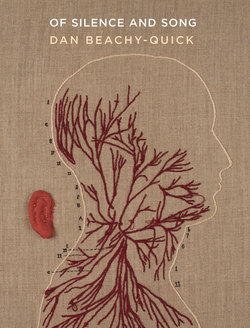Читать книгу Of Silence and Song - Dan Beachy-Quick - Страница 31
На сайте Литреса книга снята с продажи.
ОглавлениеSome Animal Poems for Children to Learn and Sing
The Golden Age
Then the animals could talk in words.
The sparrow to the farmer sang
and the farmer sang along,
the pine and the laurel counseled
the honey in its tomb to sing a tune,
and the bees agreed with the deities
that the flowers perfumed the muse
and made prophecy the deeper root.
The Lion and the Bow
The fox pulled the arrow out
from the lion’s belly,
and told him to feel no fear.
“If this messenger stung you,
Fox, as it stung me, you’d see
courage snares the heart,
binds the foot, blinds the eye.
Better to live in the lonely glen
than be a brave fool and die.”
The Net and the Fish
The big ones stay in
and the little ones swim,
what’s glory in a frying-pan
compared to the living fin?
The Horse and the Ass
The burden you refuse
becomes the weight you bear,
the horse that scorned the ass
wears the whole pack
he refused to share.
The Fox on Fire
To punish the thief of the vines,
the farmer dipped in tallow the tail
and lit it on fire. But the fox in his fear
ran straight through the fields.
Now the threshing floor has no piled grain,
and the crop is cinder and ash.
The Nightingale and the Swallow
By singing in the dark the same song
They recognized each other—
The nightingale and the swallow.
“Come live with me under the eaves
and lessen with song the load of men
who till the earth to live.” “My song
is a torment I sing alone, the desert rock
echoes it, and the morning dew that cures
thirst is now my humble home.”
Some poems of Sappho’s found in the winding cloth around the body found in the sarcophagus. A poem of Catallus’s printed on thick vellum found, claret-stained, plugging the bunghole of a tun of wine. Ancient manuscripts discovered in bookshelves kept in tombs, reading for the afterlife, there with the jars of sealed honey and the mirrors of polished bronze.
Bees used to be thought psychopomps, traveling between the living and dead, gathering pollen, dancing their dances, and if you put a poem up next to your ear and wait patiently, sometimes you can hear in it the whole hive still buzzing.
Maybe, maybe not. Maybe that’s a lie.
These poems were found in a cell with a bench carved from the same stone that formed the walls. You can imagine the cell as a single chamber of a honeycomb, hexagonal, scented by honey that left, like tears, traces where down the wall it dripped. Outside the cell was Law—where Law used to be. There they sentenced a man to death for creating new gods and corrupting the youth. He wrote poems to pass the time, and these poems are those, here for the first time printed. All the casual reader won’t be able to appreciate is the paper itself the poems were written on. Dark gray and the ink barely darker. And, held up to the light, a faint watermark drawn by hand of a bee in flight.
